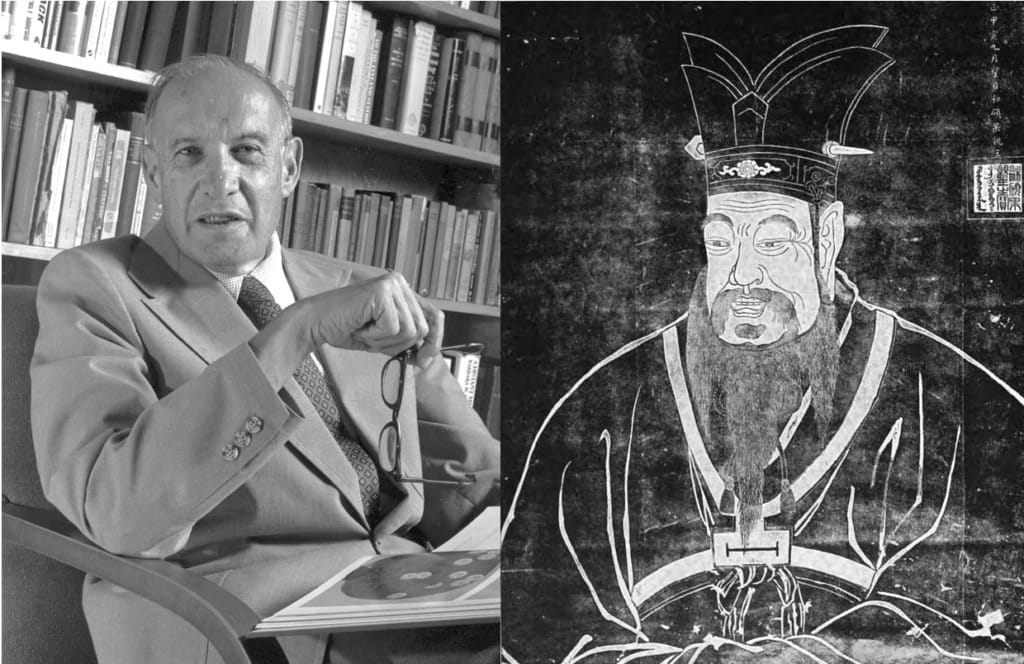East Meets West in New Book Resulting From a Successful Faculty-Student Collaboration

When she took her first class as a student in the Drucker School of Management, Virginia Cheung (PhD, Management, ‘20) had no idea that the person standing at the front of the classroom would one day play an important part in her post-graduation life.
It was Bernie Jaworski, Peter F. Drucker Chair in Management and the Liberal Arts … and Cheung’s future co-author.
This month, Cheung and Jaworski are publishing Setting the Direction for Your Firm, their new book targeted at the management marketplace in China. The book is being published in Mandarin by the Oriental Publishing Center (one of the country’s specialty publishers in books on management and economics).
“It was luck … pure luck,” said Cheung about her collaboration with Jaworski, “and I don’t know what I did in my past life to get so lucky!”
The book grew out of Cheung’s doctoral dissertation, which addresses management through a lens that brings together Drucker’s philosophy of management with Confucianism. Jaworski guided Cheung and helped her refine her dissertation’s focus that offers a unique approach to marketing and management.
Jaworski recalls that Cheung gave “a beautiful defense of her ideas, mind-blowing in the way she made it all work.”
What’s more, he saw an opportunity for her.
“I told her you’ve got something great here,” he said. “This is the type of book on management that the Chinese market really needs.”

Opportunities for Collaboration
CGU’s low student-to-faculty ratio (8:1) frequently translates into opportunities for close collaborations on research. In this case, Jaworski—a longtime Drucker faculty member with an established name in consulting circles—said he wanted to help Cheung take the critical first steps in developing her own personal, professional brand.
“Bernie is truly a life-changing mentor for me,” Cheung says. “He not only teaches Drucker principles but lives with these principles himself. He brings these principles to life to demonstrate how they can contribute to our life and work.”
In helping her with her dissertation, Jaworski gave Cheung a clearer vision of Drucker principles to complement her own extensive knowledge of Confucianism.
Jaworski said that developing the dissertation into a book would help position her as an expert at “the intersection between these two schools of thought that align so perfectly. I thought Virginia’s dissertation was the right vehicle to make that happen.”
Drucker & Confucius
Setting the Direction for Your Firm is intended for mid- to senior-level Chinese managers running product companies. The book’s first half discusses the importance of key elements, including a good mission statement, purpose statement, and vision statement. This is followed by a look at five world-class companies (including some Chinese ones) that are experts at instituting these elements, and a “do-it-yourself” section.
The book’s second half summarizes Drucker principles and Confucianism and shows how they are entirely in sync.
It’s not as much of a stretch as you might think connecting the father of modern management theory with a Chinese philosopher who lived more than two millenniums ago. Both look at the ethical dimensions of power and how it influences human relationships regardless of whether you’re talking about a civilization or a company.
Cheung says that Confucianism has been a work in progress for thousands of years, with many different traditional and non-traditional interpretations used to study it.
“In the end,” she explained, “we chose a model for our book based on the work of American Confucian scholars. It’s more from a Western perspective–how they understand Confucianism to compare with Drucker philosophies. So, we aren’t just talking about Confucianism as the Chinese understand it.”
The authors trace vital connections between Drucker and an ancient Chinese philosopher.
Currently, there are pre-orders for 20,000 copies of Setting the Direction for Your Firm. Whether it catches further fire in China remains to be seen, but Cheung already has a hopeful vision of a future path that her book may provide.
“What I want to do is to better apply the Drucker philosophy in China in a cross-cultural environment and also advance it into today’s society and localize it,” she said. “That’s achieved through management training and consulting.”
The consulting dimension, she added, is another way in which she would like to follow in Drucker’s footsteps. Drucker established his reputation thanks to his prolificness as an author and through his management consulting assistance to some of the world’s largest corporations, including General Electric, The Coca Cola Company, Citicorp, and General Motors, among many others.
Cheung’s goal is to work closely with companies studying her book “as they utilize Drucker’s principles. That would have real impact. Eventually, I’d also like to develop case studies with various companies to determine if there is academic value that can be gained from their success. Can we learn from them, and what can we learn?”
Related
- Learn more about Drucker Professor Bernie Jaworski
- Learn more about the Drucker philosophy